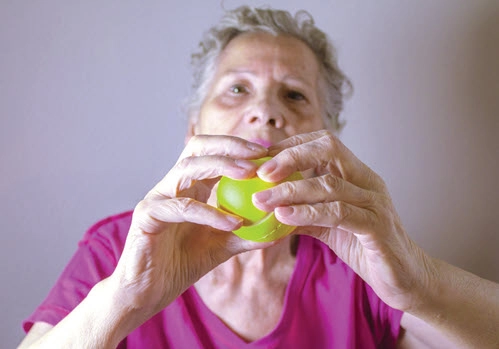Bring On Permanent OT Assessments, Commenters Urge CMS
Proposed change doesn’t go far enough, many commenters insist. The silver lining of the COVID-19 pandemic has been improvements to some regulatory requirements under Public Health Emergency waivers — including for occupational therapy. And now one of those changes is set to extend beyond the PHE. History: In April 2020, the Centers for Medicare & Medicaid Services issued a COVID-19 PHE waiver allowing “OTs to perform the initial and comprehensive assessment for all patients receiving therapy services as part of the plan of care, to the extent permitted under state law, regardless of whether occupational therapy is the service that establishes eligibility” (see HCW by AAPC, Vol. XXIX, No. 14). Then the CARES Act enacted last December required that the Department of Health and Human Services make that waiver permanent (see HCW by AAPC, Vol. XXX, No. 1). In its home health payment proposed rule for 2022, CMS proposes to revise regulations to allow “the occupational therapist to complete the initial assessment for Medicare patients when skilled nursing is not initially on the plan of care, but occupational therapy is ordered with another rehabilitation therapy service (speech language pathology or physical therapy) that establishes program eligibility,” according to the rule published in the July 7 Federal Register. “A need for occupational therapy alone would not initially establish program eligibility under the Medicare home health benefit,” CMS reminds in the rule. “Similarly … we are proposing to modify our regulatory language to allow an occupational therapist to complete the comprehensive assessment for Medicare patients when ordered with another qualifying rehabilitation therapy service (speech language pathology or physical therapy) that establishes program eligibility and when skilled nursing is not initially part of the plan of care,” CMS continues. The proposal is no surprise since it was included in the CARES Act 10 months ago, but it is nevertheless welcome. The American Occupational Therapy Association “long advocated for this change as a way to better recognize occupational therapy as an essential component of home health care,” AOTA’s Jennifer Bogenrief says in the group’s comment letter on the rule. “We enthusiastically support the proposal,” she stresses. “Occupational therapy is often the most appropriate discipline to assess and evaluate the patient in their home environment and provide interventions to ensure that the patient is able to safely perform the activities and routines they need and want to do while in their home,” Bogenrief points out. And “this change will allow the most appropriate rehabilitation skilled professional to make the initial assessment visit.” Another bonus: “The nursing staffing shortage is affecting our ability to onboard our patients right away,” one anonymous commenter tells CMS in their letter. Allowing OTs to perform initial and comprehensive assessments gets care underway faster, preventing rehospitalizations and other adverse patient outcomes, multiple commenters emphasized. The aide supervision and OT assessment “flexibilities will help home health agencies with staffing and provide efficiencies to enable agencies to focus more on patient care,” praises LHC Group Inc. CEO Keith Myers in the national chain’s comment letter on the rule. But making this waiver permanent doesn’t go far enough, many commenters stress to CMS. Two of the most popular additional changes commenters are asking for are to allow OT as a qualifying service; and to allow OTs as well as other therapists to do initial and comprehensive assessments even when skilled nursing is ordered. “Please make OT a permanent part of the SOC and give them the ability to qualify and certify home health care,” one anonymous commenter asks CMS. “Occupational Therapists are experts in the ability to evaluate the home setting and assess for functional deficits within the home. OTs certifying home health care would only be of benefit to Medicare consumers due to their expertise in the field,” they maintain. “The country is facing a nursing shortage and providing services in a timely manner is a huge aspect of preventing hospitalizations,” another anonymous commenter tells Medicare. “Occupational therapy is just as important as every other skilled service the HHAs provide and this policy needs to be brought into today’s world we live in.” This change does require legislative action, AOTA acknowledges in its letter. Another request: AOTA asks CMS to furnish education on the OT assessment change in advance of its implementation.

